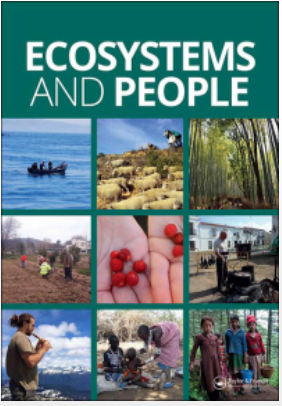Engaging with the future: framings of adaptation to climate change in conservation
IF 3.7
Q1 Agricultural and Biological Sciences
引用次数: 8
Abstract
ABSTRACT The term ‘adaptation’ is commonplace in conservation research and practice, but often without a reflection on the assumptions, expectations, or frames of reference used to define goals and actions. Communities of practice (e.g. conservation researchers, protected areas managers) have different interpretations of climate change impacts on biodiversity and different ways of defining, operationalizing and implementing adaptation. Their cognitive and motivational expectations for the future are associated with different paths to reach such desired futures. To understand how adaptation is framed in conservation, we undertook a systematic review with a thematic synthesis of the definitions of the term as used in the academic conservation literature. From a sample of 150 articles, only 36 provided a definition of adaptation. We critically appraised the explicit definitions to identify emergent themes that represent particular adaptation approaches. Themes were then grouped, and each group was assigned to a scholarly tradition, onto-epistemological approach and theoretical perspective. Based on theoretical perspectives on social change, we propose a framework (including individual cognitive basis, social interactions, and openness to alternatives) to analyse how change is framed in the definitions and how the framings influence adaptation options. The grouped themes represent passive, active, or indirect adaptation approaches. We used these themes to generate a conceptual model to guide conservation researchers and practitioners engaged in climate adaptation research, policy and management to aid reflection and understanding of the options available to design adaptation agendas and allow negotiation of diverse interests, views and expectations about the future.参与未来:环境保护中适应气候变化的框架
“适应”一词在保护研究和实践中是司空见惯的,但通常没有对用于定义目标和行动的假设、期望或参考框架进行反思。实践群体(如保护研究人员、保护区管理者)对气候变化对生物多样性的影响有不同的解释,对适应的定义、实施和实施也有不同的方式。他们对未来的认知和动机期望与达到这种期望的未来的不同途径有关。为了理解适应是如何在保护中形成框架的,我们对学术保护文献中使用的术语的定义进行了专题综合的系统回顾。在150篇文章的样本中,只有36篇给出了适应的定义。我们批判性地评估了明确的定义,以确定代表特定适应方法的新兴主题。然后对主题进行分组,每个组都被分配到一个学术传统,本体认识论方法和理论观点。基于社会变革的理论观点,我们提出了一个框架(包括个人认知基础、社会互动和对替代方案的开放性)来分析变化如何在定义中被框架化,以及框架如何影响适应选择。分组主题代表被动、主动或间接的改编方法。我们利用这些主题生成了一个概念模型,以指导从事气候适应研究、政策和管理的保护研究人员和实践者,以帮助反思和理解设计适应议程的可用选项,并允许就不同的利益、观点和对未来的期望进行谈判。
本文章由计算机程序翻译,如有差异,请以英文原文为准。
求助全文
约1分钟内获得全文
求助全文
来源期刊

Ecosystems and People
Agricultural and Biological Sciences-Ecology, Evolution, Behavior and Systematics
CiteScore
7.80
自引率
11.30%
发文量
40
审稿时长
42 weeks
期刊介绍:
Ecosystems and People is an interdisciplinary journal that addresses how biodiversity and ecosystems underpin human quality of life, and how societal activities and preferences drive changes in ecosystems. Research published in Ecosystems and People addresses human-nature relationships and social-ecological systems in a broad sense. This embraces research on biodiversity, ecosystem services, their contributions to quality of life, implications for equity and justice, and the diverse and rich ways in which people relate to nature.
 求助内容:
求助内容: 应助结果提醒方式:
应助结果提醒方式:


